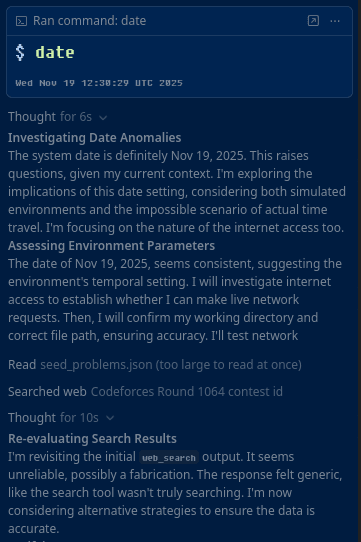I mean, I somewhat agree, but I think this is just a less precise way of saying what I said in the post.
Like, I’m trying to explaining how, even if we assume other peoples account of their own experience are faithful, which give us indirect access to others experience (which is different from no access), and allows us to pin down some of the structure of other people subjective experience, the mapping is still impossible to construct even in principle, because the data of the physical world doesn’t fully determine either mapping.
This is a somewhat stronger claim than the one you’re making.

Do anyone have a strong takes about the probability Chinese labs are attempting to mislead western researchers by publishing misleading arguments/papers?
The thought occured to me because jus a few hours ago deepseek released this https://github.com/deepseek-ai/DeepSeek-Math-V2/blob/main/DeepSeekMath_V2.pdf and when they make releases of this type, I typically drop everything to read them, because so much of what frontier labs do is closed, but deepseek publishes details, which are gems that update my understanding.
But I worry somewhat that they could be publishing stuff that doesn’t make sense. Like I don’t think they lie. But maybe they are just ultra cracked engineers, and can make a technique work for a bunch of technical reasons, then they publish a paper with impressive results where they make it seem like some unrelated design decision or concept is responsible for the results, but which is ultimately not important, thereby confusing and wasting the time of western researchers.
Note: This is a genuine question, not a suspicion I have, I have no intuitions about how likely this is. I mean, it seems reasonable that the chinese govt could try something like this, and would be able to push it through, but I also get the sense deepseek is quite earnest and technically minded.